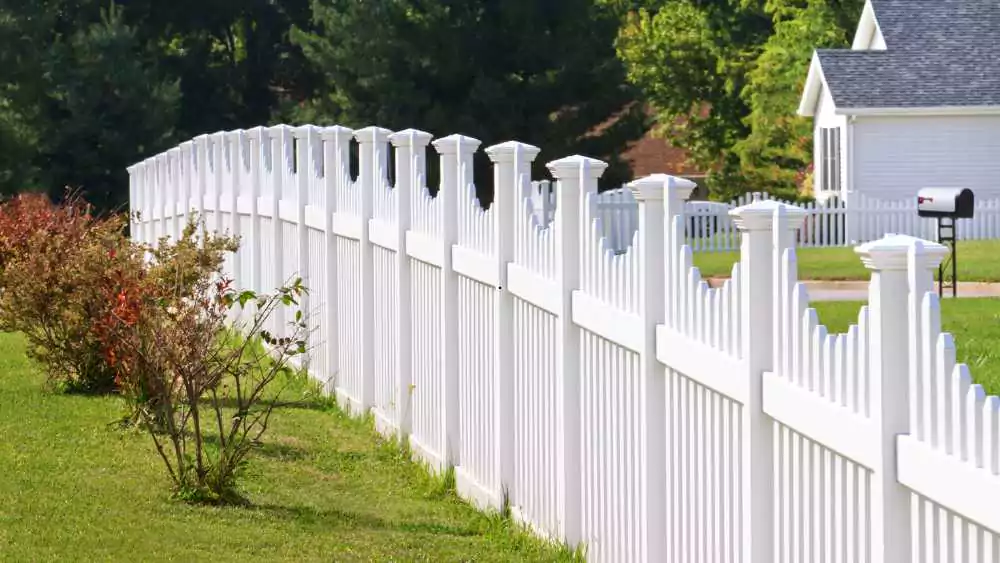Different Types of Fences and How to Choose the Right One for Your Home

Fences are an essential part of any home, providing security, privacy, and aesthetic appeal. With so many options available in the market today, choosing the right type of fence for your home can be overwhelming.
This article aims to provide a comprehensive guide on the different types of fences and factors to consider when selecting one for your property. From classic wood fences to modern vinyl options, there is a wide variety of materials and styles to choose from. Each type has its advantages and disadvantages, making it crucial to understand your specific needs before making a decision.
6 Tips On How To Choose The Right Fence For Your Home
1. Traditional vs Modern Fencing Styles
Traditional fencing styles, such as wood or wrought iron, have been a popular choice for centuries. These classic options offer timeless charm and can blend seamlessly with various architectural styles. On the other hand, modern fencing styles like vinyl or aluminum provide a sleek and contemporary look that may better suit newer homes. The team at Chaytor Co says that if you are installing a fencing system around your house, there’s a good chance you’ll need more than one gate to accommodate different access points on your property. This is where modern fencing styles can offer more flexibility and convenience. Whether you choose traditional or modern fencing styles ultimately depends on your personal preference and the overall aesthetic of your home.
2. Exploring Material Options

When it comes to choosing the right type of fence for your home, material plays a significant role. The most common materials used are wood, vinyl, and metal. Wood fences offer natural beauty and can be easily customized to fit your specific needs. However, they require regular maintenance and may not be as durable as other options. Vinyl fences, on the other hand, are low-maintenance and come in various colors and styles.
They are also highly durable and weather-resistant, making them an excellent choice for busy homeowners. Metal fences like aluminum or wrought iron provide a more industrial look but offer superior strength and security. Other materials such as bamboo, chain link, and composite fencing also have their unique set of benefits and drawbacks.
3. Considering Maintenance and Longevity
When deciding on the type of fence to install, consider maintenance and longevity factors. Wood fences require regular painting or staining to maintain their appearance and protect them from rotting or warping due to weather conditions. Vinyl, aluminum, and metal fences, on the other hand, are relatively low-maintenance and can last for decades with minimal upkeep.
However, they may be prone to scratches or dents over time. Moreover, some materials may be more susceptible to damage from insects or harsh weather conditions than others. Therefore, research each material’s durability and decide which option best suits your budget and long-term maintenance capabilities.
4. Evaluating Cost and Budget

The cost of installing a fence varies depending on the material, style, and size. Before making a decision, evaluate your budget and determine what you can afford. While wood fences may be more budget-friendly initially, they require ongoing maintenance costs that may add up over time.
Conversely, vinyl or metal fences may have a higher upfront cost but require minimal upkeep in the long run. Find the right balance between cost and durability when choosing the type of fence for your home.
5. Climate Considerations

Climate plays a vital role in the lifespan and maintenance of your fence. Therefore, consider the weather patterns in your area when choosing the right type of fence for your home. For example, if you live in an area with high humidity or frequent rain, wood fences may not be the best option as they can easily warp or rot.
Vinyl or metal fences, on the other hand, are more durable and can withstand extreme temperatures and moisture. If you live in a windy area, choose a fence that is sturdy and secure to avoid damage from strong winds.
6. Finalizing Your Decision
Prioritize your needs and consider factors such as style, material, maintenance, longevity, cost, and climate before making a decision. Seek advice from professionals or consult with neighbors who may have similar fences.
Take into account any local regulations or homeowners association rules that may impact your choice of fence. Choose a fence that not only meets your functional needs but also adds to the overall aesthetic of your property.
Last Words
Choosing the right type of fence for your home requires careful consideration of various factors. Traditional and modern fencing styles offer different aesthetics, while materials like wood, vinyl, and metal each have their unique benefits and drawbacks.
Consider maintenance, longevity, budget, climate, and local regulations before finalizing your decision. With the right choice of fence, you can enhance the privacy, security, and curb appeal of your home for years to come.
Also Read: Best Ways To Upgrade Your Home

news via inbox
Sign up and never miss out on the latest news and updates at HighStuff




